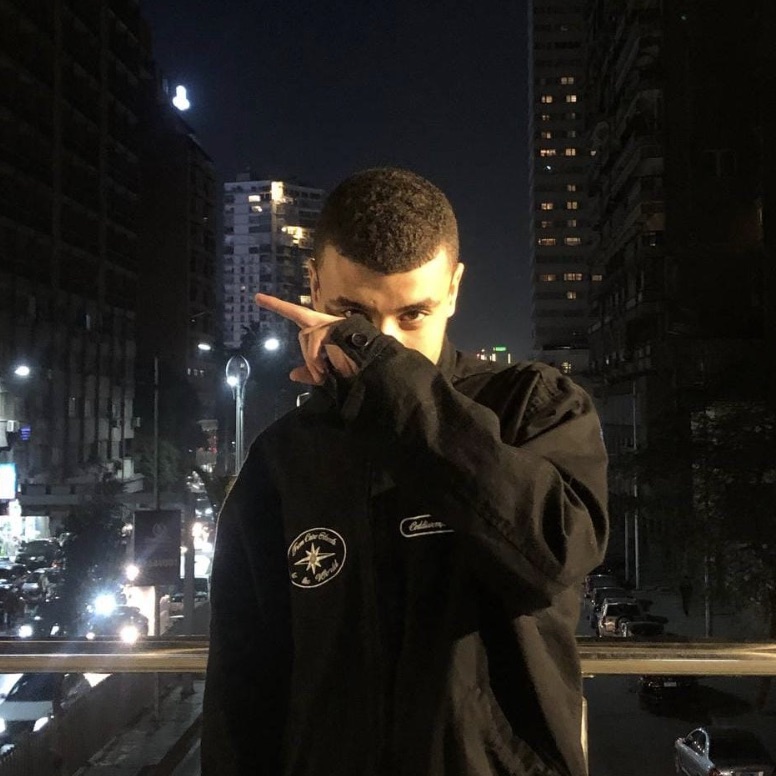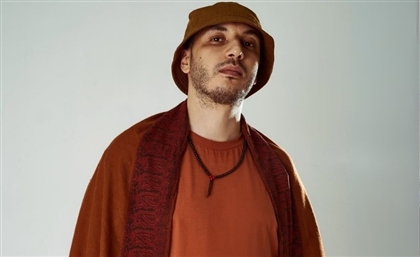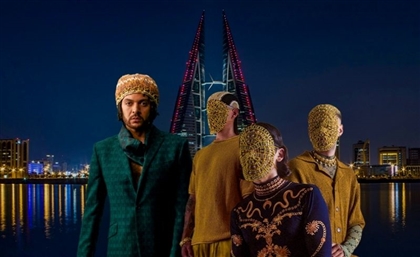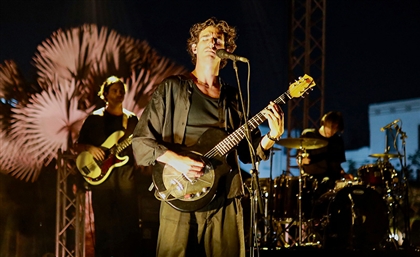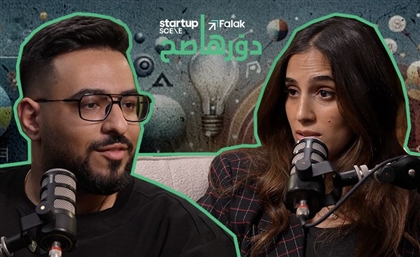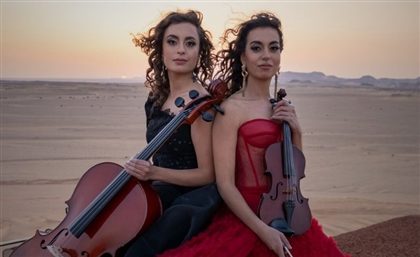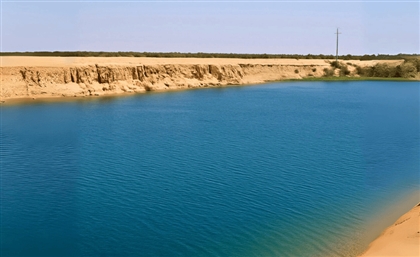In Context: How El Morabba3 Redefines Alternative Arabic Music
We delve into the journey of El Morabba3 and their profound impact on the Arabic alternative music scene.
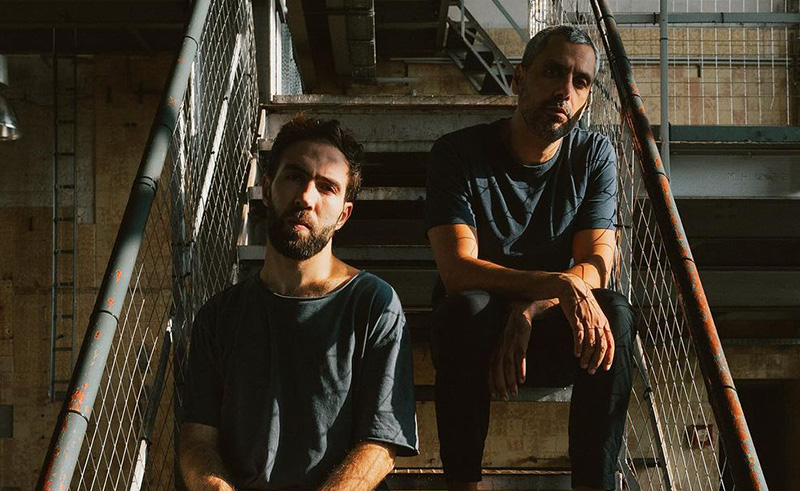
In the wake of the Arab Spring, which saw revolutions erupt across the Middle East and fundamentally shift the socio-political, economic and artistic landscapes, a powerful new movement of artists came to the forefront, embodying the revolutionary spirit and voicing the aspirations of the youth yearning for change. Although this surge existed in an underground context prior to the Arab Spring, it gained significant momentum during the uprisings, overshadowing mainstream acts for a brief but impactful period. This movement represented a collective endeavour, speaking for a generation that felt increasingly oppressed and sought to rebel, translating their defiance and hope into the sound of this era.
Dodging the larger structures of the music industry, this movement emerged as the sound of revolution itself. It resonated across the region, particularly in Jordan, Lebanon, Egypt, Palestine and Tunisia. Among these, the Jordanian scene stood out as one of the most active and influential, producing some of the most noteworthy rock experiences in Arabic music. Amman became a hub of alternative music, fostering a true sense of collective spirit that reshaped the Arabic rock landscape through pioneering acts, albums and collaborations. Bands like Autostrad, Jadal, Akher Zapheer and Hayajan were integral to this movement, with El Morabba3 holding a particularly significant place as one of its most impactful voices.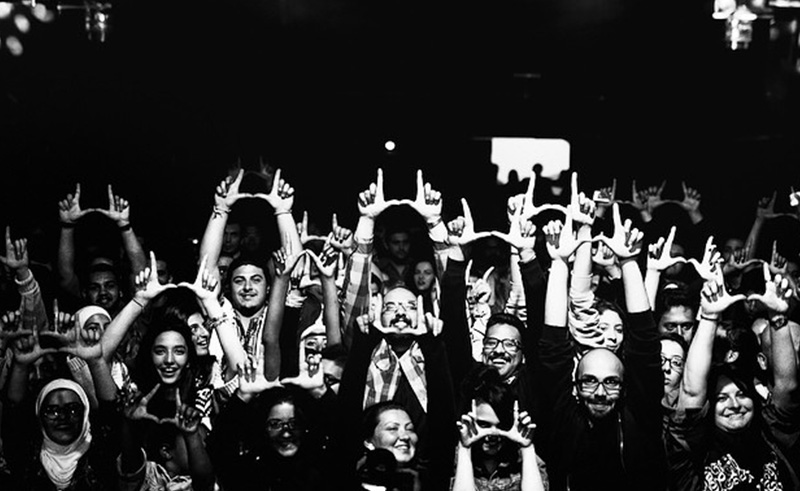 Formed in 2009, El Morabba3 brought an approach to rock music previously unheard of in the region, thanks to an exceptional joint effort of four initial members: Muhammed Abullah, Odai Shawgfeh, Dirar Shawagfeh and El-Far3i. Unlike what most other bands at the same time were doing - which was basically classic rock band structure, a one-man-led group of musicians - this energy was never felt in El Morabba3's music. The band truly embodied their name in both its literal and metaphorical meaning.
Formed in 2009, El Morabba3 brought an approach to rock music previously unheard of in the region, thanks to an exceptional joint effort of four initial members: Muhammed Abullah, Odai Shawgfeh, Dirar Shawagfeh and El-Far3i. Unlike what most other bands at the same time were doing - which was basically classic rock band structure, a one-man-led group of musicians - this energy was never felt in El Morabba3's music. The band truly embodied their name in both its literal and metaphorical meaning.
It is said that the band’s name, El Morabba3 (meaning "the square"), originated from the idea that each member represents a side of that metaphorical square, which the band later revealed as a metaphor for a window through which they view the world. In a 2015 interview with SceneNoise, Abdullah confirmed that the name came about by mere coincidence when musician Hamza from Autostrad called the four members "El Morabba3" during a jamming session at his house, and the name stuck with them ever since. Each side of El Morabba3 contributed their musicianship, taste, technical knowledge, expertise and perspectives, culminating in the creation of their self-titled debut masterpiece, which was released in 2012, just months after the Arab Spring erupted across the region, reshaping the entire socio-political and economic landscape.
In terms of musicianship alone, the four members possessed extraordinary chemistry among them: Muhammad Abdullah on the bass guitar, Odai on the keys, synthesisers and electric guitar, El-Far3i contributing vocals and acoustic guitar, and Dirar taking charge of the rhythm section on the drums. Muhammad Abdullah was the primary songwriter and vocalist on the first album, along with El-Far3i, in which the band unveiled itself as a force to be reckoned with in the Arabic independent music scene. While the Jordanian scene was brimming with incredible talent in the rock and indie genres with bands like Jadal, Akher Zapheer, Autostrad, and many others, all of these bands, though their works were highly praised and well-received, did not go beyond the traditional rock/indie sounds of grunge and alt-rock. This is where El Morabba3 really distinguished themselves, adopting unorthodox techniques and methods, improvisational song composition and immaculate technical proficiency, all while being on a higher level in terms of lyrical and songwriting quality.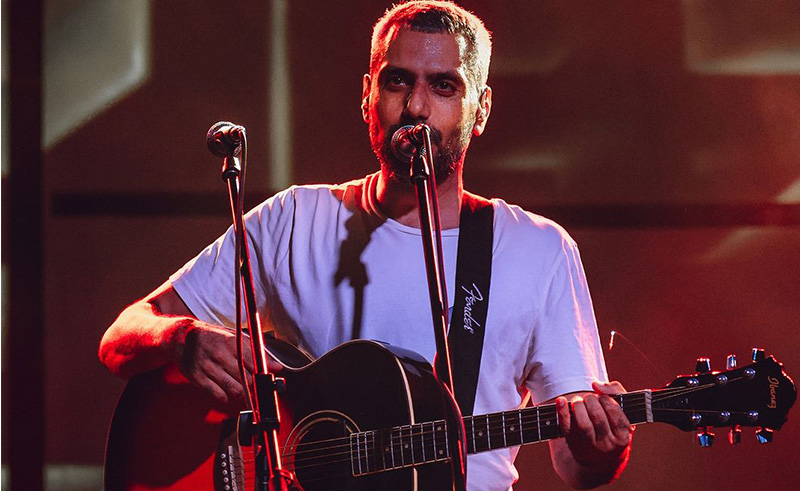 Their debut self-titled album presented a fusion of post-rock, alternative rock, electronica, ambient influences, and even hip-hop elements. This coalescence of genres felt anything but forced; it was natural and authentic and didn’t feel derivative like most of their contemporaries at the time. The album consisted of nine tracks with a runtime of 46 minutes, a dense record that revealed a layer of its technical nuance every listen, and its lyrical content hit just as hard and struck just as deep every time.The band’s music was deeply political - not by aligning with specific ideologies, but by challenging and examining the impact of politics on human lives. Abdullah's lyrics were philosophical, reflective and defiant of the status quo. From the opening track ‘Asheek’, Abdullah confronts Mahmoud Abbas, the Palestinian president, about his actions that led to the diminishing and deteriorating state of Palestinians under his leadership. “This is not a typo, oh Mahmoud,” he sings in the chorus. The music speaks louder as Abdullah’s lyrics fade in a sonic-lyrical conversation, and Abdullah’s chants close the track with a fundamental question that he asks Abbas, and probably to all the region’s oppressive regimes: “Why would you block the sun?”
Their debut self-titled album presented a fusion of post-rock, alternative rock, electronica, ambient influences, and even hip-hop elements. This coalescence of genres felt anything but forced; it was natural and authentic and didn’t feel derivative like most of their contemporaries at the time. The album consisted of nine tracks with a runtime of 46 minutes, a dense record that revealed a layer of its technical nuance every listen, and its lyrical content hit just as hard and struck just as deep every time.The band’s music was deeply political - not by aligning with specific ideologies, but by challenging and examining the impact of politics on human lives. Abdullah's lyrics were philosophical, reflective and defiant of the status quo. From the opening track ‘Asheek’, Abdullah confronts Mahmoud Abbas, the Palestinian president, about his actions that led to the diminishing and deteriorating state of Palestinians under his leadership. “This is not a typo, oh Mahmoud,” he sings in the chorus. The music speaks louder as Abdullah’s lyrics fade in a sonic-lyrical conversation, and Abdullah’s chants close the track with a fundamental question that he asks Abbas, and probably to all the region’s oppressive regimes: “Why would you block the sun?”
The album continued to follow these weighty, politically charged messages throughout. Most of the tracks on the record became anthems of the Arab Spring era; songs like ‘Ma Indak Khabar’, ‘Taht Al Ard’, ‘Laykoon’ and ‘Ya Zein’ were tracks that hit a nerve with the youth of the Arabic revolution. ‘Ya Zein’ spoke of the effects of the Gulf War and the use of depleted uranium by the US military in Fallujah, leaving its remains living for decades in the air, damaging the lives of children and affecting the genetics of an entire population with no remorse under the guise of peace. In the track, El-Far3i delivers one of the most powerful rap verses dissecting, blaming, and recounting these atrocities. ‘Ma Indak Khabar’ became an anthem of rebellion, with Odai Shawgfeh's climactic guitar riffs, Abdullah’s cries and Dirar’s explosive drums, making it one of the most emotionally and politically charged songs of that era. It remains a timeless piece of Arabic rock music, ingrained in the consciousness of this generation. The album cemented the band as one of the leading rock acts in the region. It pushed the boundaries of the genre musically while presenting intellectual, emotional and political reflections throughout the record. Soon after the album's release, El-Far3i departed the band to focus on his solo career, marking a significant shift for El Morabba3. Despite this, the band's identity remained solid, a theme that would resurface throughout its journey. Fans eagerly anticipated the next album, and after four years marked by financial difficulties and limited support, the band turned to crowdfunding to complete and release their record. In 2016, their efforts culminated in the album ‘Taraf Al Khait’.
‘Taraf Al Khait’ arrived to cement El Morabba3 as one of the most forward-thinking and daring rock experiences of the Arab world. A significant shift towards electronic textures, it was a much more subtle and polished sonic experience that revealed itself with less explosive sonics but profound conceptuality. ‘Taraf Al Khait’ - though it polarised fans at first for its unconventional approach, with fans starting to wonder if it was even rock anymore - proved to be a much more mature experience in terms of songwriting, and much more daring and innovative in terms of composition and stylistic depth.
Rather than a direct political statement, ‘Taraf Al Khait’ was a contemplative reflection on the aftermath of the Arab Spring. It delved into the generation’s lost ambitions and uncertain future, exploring the philosophical implications of their struggle against oppressive regimes. Their hard-won victory proved fleeting, as the same oppressors reclaimed power and control. The album opened with ‘Ilham’ (Muse), a haunting track where Abdullah grappled with a lack of inspiration. He directly addressed his muse, pleading for relief from his creative suffering. This set the tone for the album, both thematically and musically, with its subdued instrumentation and Abdullah’s poignant lyrics, “I have reached the end of the thread, then I lost it,” encapsulating the disillusionment of the Arab youth. Following the release of ‘Taraf Al Khait’, the band went on a hiatus that lasted until 2018. The news came from the band’s founder, Abdullah, who announced the departure of the brothers Odai and Dirar Shawgfeh, confirming that El Morabba3 would continue as a project through other collaborations and initiatives. During this period, the Arabic alternative music movement began to lose prominence within the broader music landscape. Once embraced by audiences as the sound of change and hope, this movement had at one time eclipsed mainstream music. However, it experienced a significant decline as many bands and acts either reformed or disbanded due to a lack of support or their commitment to remaining on the fringes of the larger industry.
Odai Shawgfeh embarked on a solo project, Gha’em Goz’y (Partly Cloudy), where he delved into ambient and atmospheric music, while Dirar chose to leave the music scene entirely. Abdullah remained the last active member of the original lineup, and without new music, El Morabba3 began to fade from public memory. It wasn’t until February 2023 that the band announced their comeback with the release of the single ‘Al Wushoosh’, marking a radical shift towards experimental electronic music.
The band revealed that they had reformed with only two members: Abdullah as the founder and producer, and Basel Naouri as the producer, forming the new two-sided square. This change in lineup, coupled with a move from Amman to Berlin, allowed El Morabba3 to explore new artistic horizons marked by a drastic shift to electronic music, largely influenced by Basel’s contributions.
In September 2023, the band returned to Egypt, performing three shows, including the closing performance of the Bibliotheca Alexandrina’s Summer Festival. They reinterpreted their original material in a groundbreaking new approach, with Basel’s intricate use of synthesisers replacing the original alt and post-rock elements. This significant transformation left fans divided after the performances. Despite the drastic shift in their sound, El Morabba3’s core sonic identity remained intact, with only the framing evolving. Basel Naouri did not simply replace former members but expanded the band’s artistic reach, pushing the boundaries of what an alternative act could be.
More than 15 years after its formation, El Morabba3 stands as one of the boldest alternative music experiences to emerge from the Middle East in recent decades. They embody the necessity of change and adaptation, maintaining experimentation as their core essence. While many rock acts from their era have clung to their original sound, El Morabba3 continues to defy genre constraints, presenting themselves as an ever-evolving force in the Arabic independent music scene.
- Previous Article Italian-Palestinian Duo No Input Debuts Eponymous Electro EP
- Next Article Halle Berry Spotted Sporting Egyptian Label Jude Benhalim
Trending This Week
-
Sep 09, 2025
-
Sep 09, 2025







